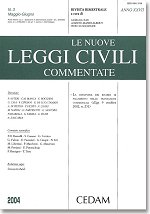Today’s Official Journal (L, nº 200), publishes two new IPL Regulations: REGULATION (EC) No 662/2009 OF THE EUROPEAN PARLIAMENT AND OF THE COUNCIL of 13 July 2009 establishing a procedure for the negotiation and conclusion of agreements between Member States and third countries on particular matters concerning the law applicable to contractual and non- contractual obligations; and COUNCIL REGULATION (EC) No 664/2009 of 7 July 2009 establishing a procedure for the negotiation and conclusion of agreements between Member States and third countries concerning jurisdiction, recognition and enforcement of judgments and decisions in matrimonial matters, matters of parental responsibility and matters relating to maintenance obligations, and the law applicable to matters relating to maintenance obligations. Both Regulations shall enter into force on the 20th day following their publication in the Official Journal of the European Union.
According to whereas nº 6 to 8 of both Regulations, it is for the Community to conclude, pursuant to Article 300 of the Treaty, agreements between the Community and a third country on matters falling within the exclusive competence of the Community; article 10 of the Treaty requires Member States to facilitate the achievement of the Community’s tasks and to abstain from any measure which could jeopardise the attainment of the objectives of the Treaty. With regard to agreements with third countries on specific civil justice issues falling within the exclusive competence of the Community, a coherent and transparent procedure should be established to authorise a Member State to amend an existing agreement or to negotiate and conclude a new agreement, in particular where the Community itself has not indicated its intention to exercise its external competence to conclude an agreement by way of an already existing mandate of negotiation or an envisaged mandate of negotiation.
Regulations (EC) No 662/2009 and No 664/2009 therefore establish a procedure to authorise a Member State to amend an existing agreement or to negotiate and conclude a new agreement with a third country. This is a summary of such procedure:
.- Following article 3, where a Member State intends to enter into negotiations in order to amend an existing agreement or to conclude a new agreement falling within the scope of this Regulation, it shall notify the Commission in writing of its intention at the earliest possible moment before the envisaged opening of formal negotiations. Upon receipt of the notification referred to, the Commission shall assess whether the Member State may open formal negotiations. If the envisaged agreement meets the conditions set out in article 4(2) of the Regulation, the Commission shall, within 90 days of receipt of the notification referred to before, give a reasoned decision on the application of the Member State authorising it to open formal negotiations on that agreement. If necessary, the Commission may propose negotiating guidelines and may request the inclusion of particular clauses in the envisaged agreement.
.- If, on the basis of its assessment , the Commission intends not to authorise the opening of formal negotiations on the envisaged agreement, it shall give an opinion to the Member State concerned within 90 days of receipt of the notification referred to in Article 3. Within 30 days of receipt of the opinion of the Commission, the Member State concerned may request the Commission to enter into discussions with it with a view to finding a solution.
.- According to article 7 of both Regulations, the Commission may participate as an observer in the negotiations between the Member State and the third country as far as matters falling within the scope of the Regulation are concerned. If the Commission does not participate as an observer, it shall be kept informed of the progress and results throughout the different stages of the negotiations.
.- Article 8 states that before signing a negotiated agreement, the Member State concerned shall notify the outcome of the negotiations to the Commission and shall transmit to it the text of the agreement. Upon receipt of that notification the Commission shall assess whether the negotiated agreement meets the conditions stated in art. 8. If the negotiated agreement fulfils the conditions and requirements referred to in paragraph 2, the Commission shall, within 90 days of receipt of the notification referred to in paragraph 1, give a reasoned decision on the application of the Member State authorising it to conclude that agreement.
.- If, on the basis of its assessment under Article 8(2), the Commission intends not to authorise the conclusion of the negotiated agreement, it shall give an opinion to the Member State concerned, as well as to the European Parliament and to the Council, within 90 days of receipt of the nptification referred to in Article 8(1). Within 30 days of receipt of the opinion of the Commission, the Member State concerned may request the Commission to enter into discussions with it with a view to finding a solution.
Where, at the time of entry into force of this Regulation, a Member State has already started the process of negotiating an agreement with a third country, the described procedure shall apply.
 An extensive and thorough commentary on the Rome I Regulation – the first, to the best of my knowledge, to provide an article-by-article analysis of the rules of the new EC instrument on the law applicable to contractual obligations – has been published in the latest issue (no. 3-4/2009) of the Italian journal Le Nuove Leggi Civili Commentate , one of the most authoritative Italian law review, published bimonthly by CEDAM (Padova).
An extensive and thorough commentary on the Rome I Regulation – the first, to the best of my knowledge, to provide an article-by-article analysis of the rules of the new EC instrument on the law applicable to contractual obligations – has been published in the latest issue (no. 3-4/2009) of the Italian journal Le Nuove Leggi Civili Commentate , one of the most authoritative Italian law review, published bimonthly by CEDAM (Padova). The papers presented at the
The papers presented at the